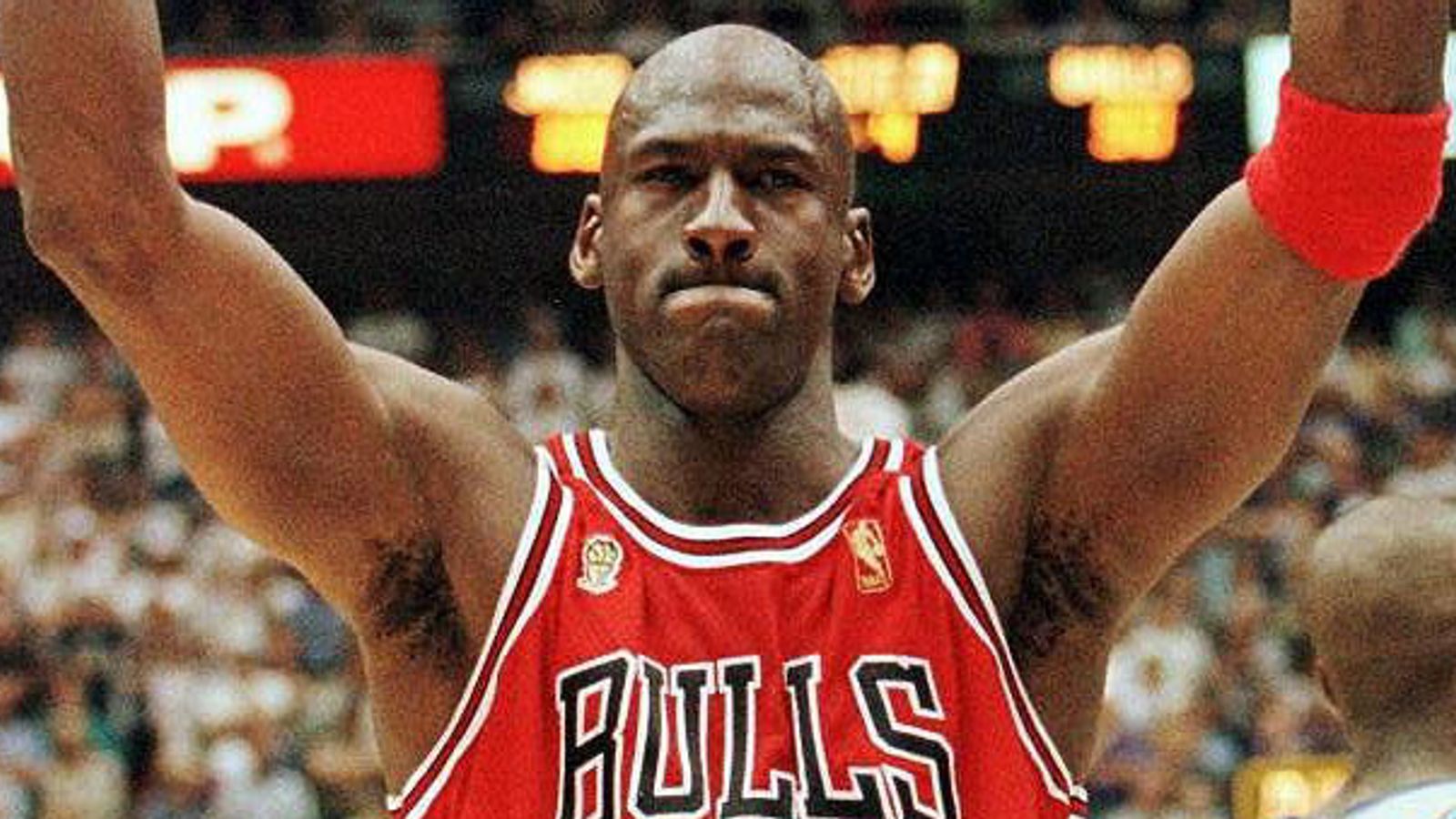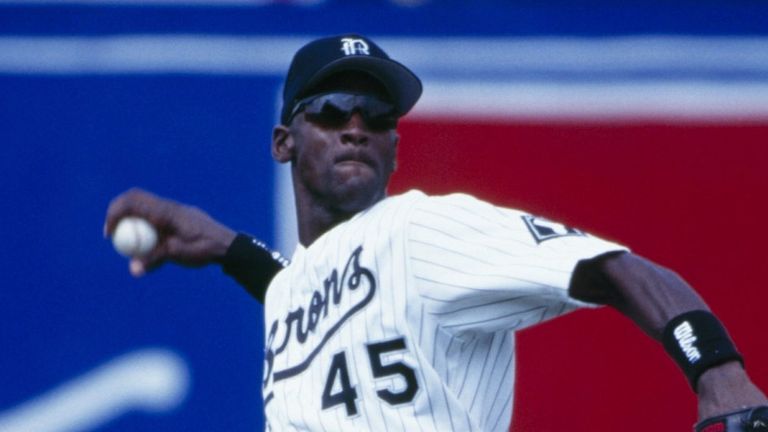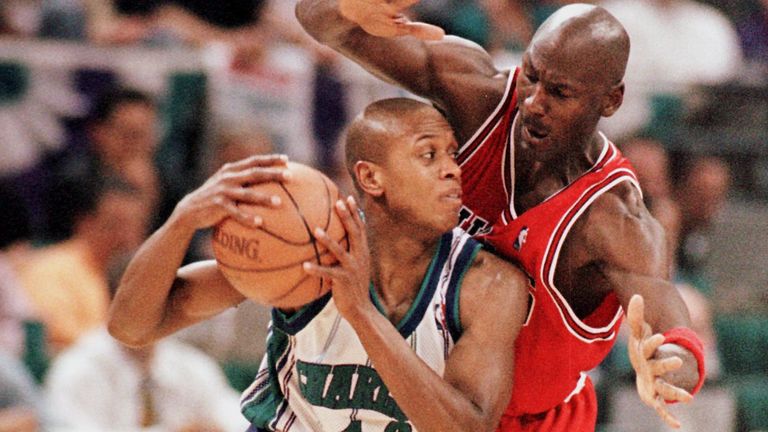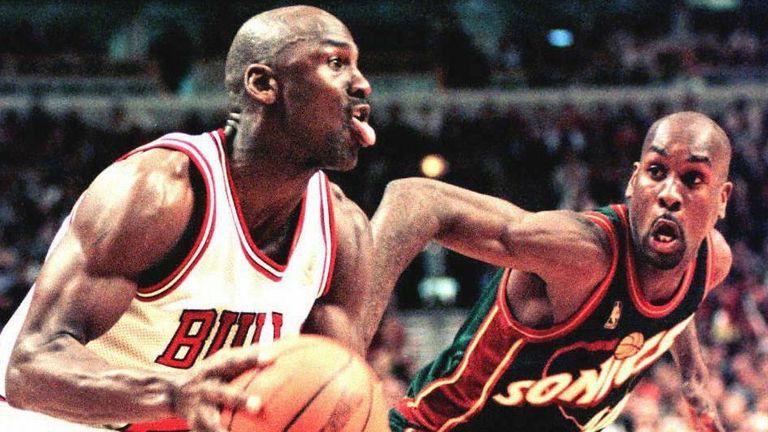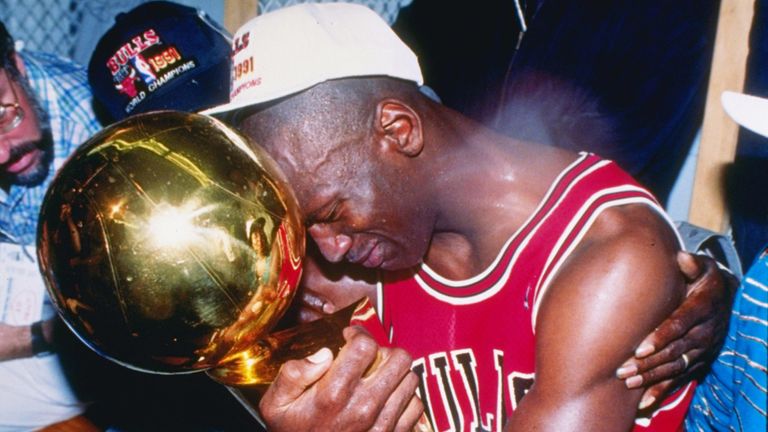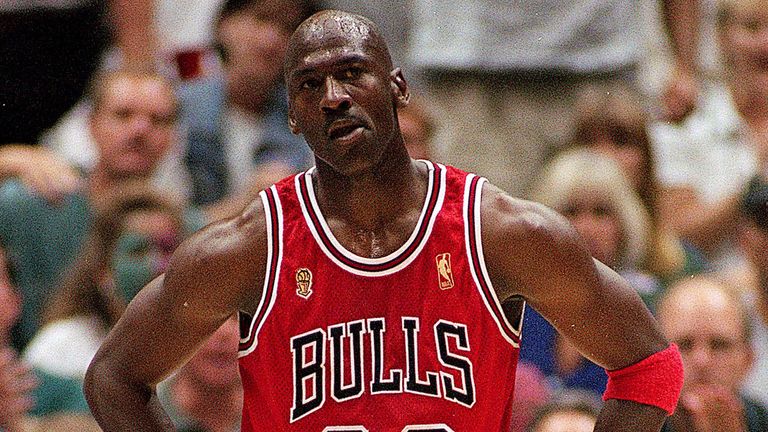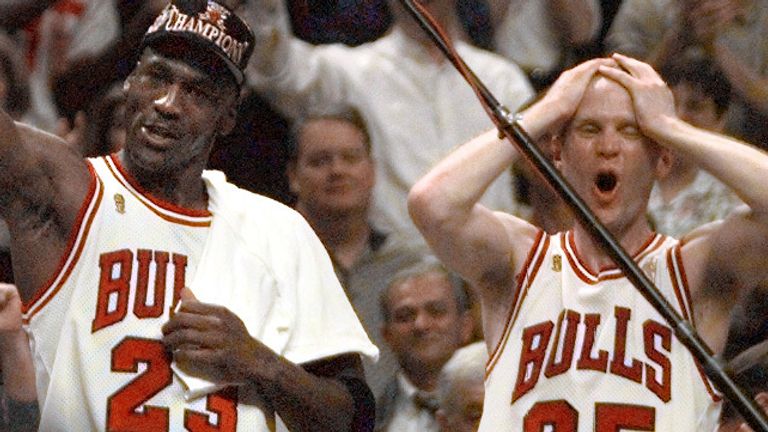Broadcaster and NBA diehard Mark Webster reveals what he learned from the latest episodes of The Last Dance.
British fans will recall Mark Webster as the face of NBA basketball on Channel 4 and Channel 5 back in the day. These days you can hear him discussing sporting matters on talkSPORT 2 and talking music on Five Live on Saturday nights.
And rest assured he is still a big-time basketball fan. His documentary, The Making of Michael Jordan, examines MJ’s sporting and cultural impact and his journey to becoming a billionaire phenomenon – you can hear it on talkSPORT 2 at 11pm on May 17.
Here Mark gives us his takeaways from the latest episodes of The Last Dance.
“NBA can exist without MJ, but it’s better with him”
The essence of episodes seven and eight showed Jordan’s journey from the Bulls’ third title win in 1993 through to their fourth championship three seasons later. That time period spanned the tragic death of Jordan’s father, his baseball sojourn and his eventual return to basketball. In particular, we saw how the Chicago Bulls and the NBA coped with him and without him.
Without Jordan, the 1994 Bulls built some momentum with Scottie Pippen as a leader until it all became too much for him in the playoff series against the Knicks. Pippen refused to re-enter the game when told during a timeout that Toni Kukoc, not he, would take the last shot. And in Jordan’s absence, the team implodes.
In its own weird way, you could argue it had to happen that way. Episode seven showed the realisation throughout the Bulls organisation that they can’t get by without Jordan.
I thought BJ Armstrong’s cameo in these episodes was really entertaining. In episode eight – playing for the Charlotte Hornets – he briefly becomes another vanquished Jordan playoff nemesis. But in episode seven, we see it was Armstrong who Jordan called during the baseball strike, it was Armstrong who brought Jordan along to a Bulls practice and it was Armstrong who teases Jordan into a game of one-on-one. Armstrong played a focal role in getting Jordan back onto a basketball court and, be it on a superficial or subconscious level, he understood how to connect with him.
Phil Jackson said when Jordan returned the Bulls were back at “full power” again. There was never a sense of resentment from anybody that Jordan was able to walk back onto the team because everyone seemed to understand they were so much better with him. It was almost a case of, ‘Phew, we can start winning again’.
The Bulls and the NBA could both exist without Jordan, but both were much better with him. And that was something understood by everyone from NBA commissioner David Stern down to Bulls support staff.
That’s something that was also visible in my favourite clip from these episodes: the footage of the pick-up games from the set of ‘Space Jam’. Every top player in the NBA, from Patrick Ewing to Reggie Miller, turns up to help make Jordan better again so he can eventually beat them when the season gets underway. None of them say ‘why would we want to help Michael Jordan?’ It seemed to be in everybody’s interest that he returned to the NBA at his peak.
As the old song goes, you don’t know what you’ve got ’til its gone. The Bulls and the NBA were diminished by Jordan’s absence then improved by his return. No wonder they welcomed him back with open arms.
Jordan the master self-motivator
TV reporter (and Jordan confidante) Ahmad Rashad was extraordinarily insightful in these episodes. The moment where he recalled having to help Jordan put on his tie before his father’s funeral was so touching.
But I also loved the story Rashad told about having dinner with Jordan when Seattle Supersonics coach George Karl (like Jordan, a graduate of the University of North Carolina) blew him off in a restaurant before the Bulls-Sonics 1996 NBA Finals. Rashad shaking his head saying ‘what did he think he was doing?’ was so funny because he knew Jordan would use the perceived slight to motivate himself to win those Finals.
Then we had the tale of LaBradford Smith, a Washington Bullets player who has a place in basketball history despite not many people seeing him play purely because of Jordan. Smith scored 37 points in a March 1993 win over the Bulls. It was reported, from a Jordan quote, Smith had said “Nice game, Mike” in the aftermath of the game. The result? When the Bulls met the Bullets again the following night, Jordan lit Smith up for 36 points in the first half alone.
The kicker? Smith never said “Nice game, Mike”. Jordan would later admit he had made it up and used it as motivational fuel.
We also saw a fully motivated Jordan smoking a cigar and wielding a baseball in the Bulls locker room ahead of a 1998 playoff game against Charlotte. The Hornets, thanks to former Bull BJ Armstrong, had pulled off a shock win in Game 2. Losing to an ex-team-mate was all the motivation Jordan needed and he was ready to exact revenge.
To me, that footage was the NBA reimagination of that legendary scene from The Untouchables when Robert De Niro (as Al Capone) is at the dinner table and kindly points out which one of his protagonists is the snitch by lamping him round the head with a baseball bat.
Jordan reveals the price of winning, the price of leadership
I didn’t know that the emotional Michael Jordan we’ve seen in the sit-down interviews in the Last Dance existed. You never saw it when he was a player. Since he retired and became a team owner, he has been kind of reticent in his appearances. He has never sat on a panel like Charles Barkley or Shaq have done.
I don’t think we as the public have ever seen Jordan as liberated and relaxed as we’ve seen him sitting in his chair with his giant glass of Scotch in these modern-day interviews. I did notice how full that glass was in episode seven when Jordan said: “Winning has a price. Leadership has a price. Once you join the team, you lived at a certain standard I played the game. And I wasn’t going to take anything less.”
You can see in his face the realisation of the kind of person he had to be to achieve the success he had and the mixed emotions he now has about that looking back. You could see the anxiety over what he had to sacrifice – giving up being one of the guys on the team so he could lead a team and get what he wanted: championships.
We got more clarity on Jordan’s obsession with winning at any cost at the expense of his ability to be a team-mate and it reduces him to tears at one point. I can’t imagine anyone outside his inner sanctum has ever seen that. He has never exposed himself emotionally on film or in public like this before.
When Jordan was a player, and possibility to the same extent as an owner, there were rules by which to abide. In those roles, he is representing the league and he has to mind his Ps and Qs. Those rules don’t apply in these interviews and we’re seeing a fascinating side of Jordan exposed.
Mark Webster’s documentary, ‘The Making of Michael Jordan’, examines MJ’s sporting and cultural impact and his journey to becoming a billionaire phenomenon – hear it on talkSPORT 2 at 11pm on May 10
Watch The Last Dance, a 10-part documentary series on Michael Jordan and the 1997-98 Chicago Bulls on Netflix via your Sky Q box – episodes 1-8 are available now

